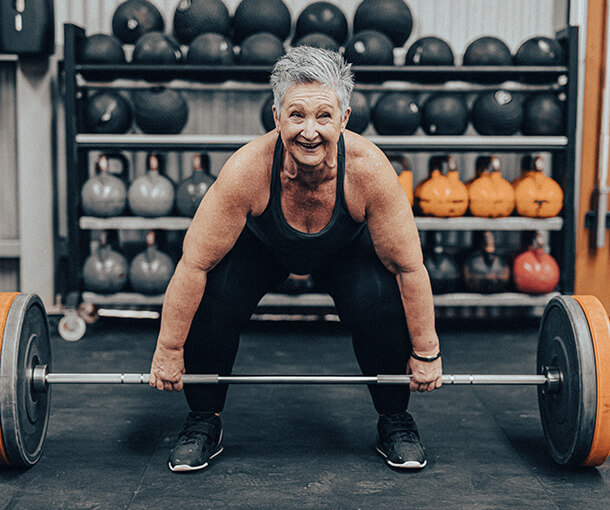3 key things you need to know about vitamin D
Vitamin D is the “sunshine vitamin”. It’s important for building strong bones and muscle function, as it helps your body absorb dietary calcium1 . Find out why it’s so important to get enough vitamin D, and how to get the right amount.
1. About one in four Australians do not get enough vitamin D (mild, moderate or severe insufficiency).
2. Vitamin D is important for your general health and to keep your bone strong. Your body needs vitamin D to absorb calcium from your food1.
3. Your skin makes vitamin D when exposed to sunlight; this is your main source of vitamin D. Not many foods are rich in vitamin D and it may not be possible to provide enough to meet your needs through diet alone. Supplements can help top up your vitamin D levels1.
What is vitamin D?
- Vitamin D is the “sunshine vitamin” – it’s made when your skin is exposed to sunlight1,2,3
- ‘Vitamin D’ includes several different closely related substances.
- Vitamin D3 (also called colecalciferol) is the type made by your skin3 and is used in most supplements.
- Vitamin D2 (ergocalciferol) is found in some plants, and may be added to fortified foods 3.
- Your body changes vitamin D3 and D2 into different forms. 25-Hydroxy-vitamin D (25-OHD), which circulates in the blood, is the form used to assess your vitamin D level 2.
Why is vitamin D so important?
- Your body needs vitamin D to absorb calcium from your food1 . With insufficient vitamin D levels, your body’s ability to absorb calcium from your food is reduced by about half 7
- Vitamin D is important to maintain bone strength and muscle function1,3
- Vitamin D is also important for general health, as it plays a role in many different body functions 3
What are the symptoms of low vitamin D levels?4,5,6
- Most people with low levels of vitamin D do not notice any symptoms.
Who is at risk of vitamin D insufficiency?
About 1 in 4 Australians have vitamin D insufficiency.7
- You may be at risk of vitamin D insufficiency if you1:
- are elderly, particularly if you are housebound or are in institutional care
- are naturally darker skinned – the pigment in dark skin reduces the penetration of UV light
- avoid the sun for long periods by choice or for medical reasons.
- you cover your body for religious or cultural reasons
- have other medical conditions that may affect the way your body absorbs, processes or stores vitamin D
- Babies are at risk of vitamin D insufficiency if their mother is vitamin D insufficient during pregnancy or breastfeeding, while an excellent source of nutrients, is actually quite low in Vitamin D8.
How do I find out if I have vitamin D insufficiency?
- People with risk factors for low vitamin D may need a supplement. Take this simple online questionnaire to check if you might be at risk of vitamin D insufficiency.
- Or talk to your doctor if you think you might have very low vitamin D levels. Your doctor can order a blood test and make a recommendation for a vitamin D supplement that would suit your specific needs.
How can I get enough vitamin D?
- Sunshine is the main source of vitamin D for most Australians1
- Your skin makes vitamin D when it’s exposed to ultraviolet light from the sun.
- Ultraviolet light does not pass through windows, so you need to be outside to get the sunshine benefit1
- The amount of sunshine you need depends on your type of skin and where you live, and can vary with the time of day and time of year1,3.
- Since sun exposure has benefits but also risks, we suggest you refer to the Cancer Council SunSmart leaflet ‘How much sun is enough’ available here.
- Sunscreens protect your skin from sun damage by cutting down the amount of ultraviolet light penetrating your skin.
- You should use sun protection measures if the UV index is 3 or above and you are outdoors for more than a few minutes. More information is available here.
- A few foods such as herring, mackerel, liver, eggs and fortified foods contain some vitamin D. But it will be hard to get all your required vitamin D from diet alone. If you have risk factors for low vitamin D, you may benefit from a supplement.
Disclaimer: This article is meant for information purposes only. Please consult your health professional if you have further concerns or questions related to your vitamin D levels or risk factors.
3 interesting facts about vitamin D
1. Vitamin D is the only vitamin your body can make for itself, with sufficient sunlight. You get all other vitamins (and minerals) from the food you eat. If you are not getting enough vitamins and minerals from your food, supplements can help you to top up2.
2. Your body changes vitamin D into a hormone that has many different functions2.
3. As well as being important for bones and muscles, vitamin D may also help support a healthy immune system, and cardiovascular system.2,9
References available upon request
MAT-AU-2401873
REFERENCES:
1. Healthy Bones Australia. What you need to know about osteoporosis. Consumer guide. 4th Edition 2017.
2. Vitamin D Council. About vitamin D. Available from https://www.vitamindcouncil.org/about-vitamin-d/what-is-vitamin-d Accessed September 2019.
3. Stroud ML. Vitamin D: A review. Aust Fam Physician 2008; 37: 1002–5.
4. Holick MF, Chen TC. Vitamin D deficiency: a worldwide problem with health consequences. Am J Clin Nutr 2008; 87(suppl): 1080S– 6S.
5. Gonzalez-Chica D, Stocks N. Changes to the frequency and appropriateness of vitamin D testing after the introduction of new Medicare criteria for rebates in Australian general practice: evidence from 1.5 million patients in the NPS MedicineInsight database. BMJ Open 2019; 9: e024797.
6. Spritzler F. Healthline Nutrition: 8 signs and symptoms of vitamin D deficiency. Available from Vitamin D Deficiency. Accessed September 2019.
7. Australian Bureau of Statistics. Australian Health Survey: Biomedical Results for Nutrients, 2011-12. 4364.0.55.006. Available from: https://www.abs.gov.au/ausstats/abs@.nsf/Lookup/4364.0.55.006Chapter2002011-12.
Accessed December 2019.
8. Paxton G. Nowson C. Mason R. McGrath J., et. al. Vitamin D and health in pregnancy, infants, children and adolescents in Australia and New Zealand: a Position Statement MJA 198 (3) 2013.
9. Healthline Vitamin D May Improve Your Cardiovascular Health – Heart Health and Vitamin D (healthline.com) –
Accessed July 2022







